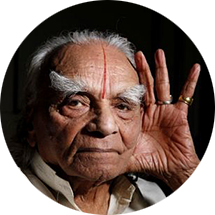We ♥ Planet Earth (and our children)
We, at Malaika Padma try to be a responsible company and to help keep our planet clean. Therefore, most of the products we sell and manufacture are made of organic fabrics. All of the products we sell are sweatshop free.
Why organic you ask? Because we just ♥ ♥ ♥ planet earth!
Conventionally grown cotton consumes approximately 25% of insecticide and more than 10% pesticides used worldwide. Conventional farming pours roughly one third of a gallon of pesticide and fertilizers to produce enough cotton for a single T-shirt! This means trouble…
Some facts about organic cotton you may be interested to know
Organic cotton is grown in an environmental friendly process – no insecticide, pesticide or synthetic fertilizers used what so ever.
Only untreated seeds are planted as oppose to those treated with fungicides or insecticides.
Crop rotation (growing different crops) is used to strengthen the soil as oppose to synthetic fertilizers and mono crop (growing the same crop every time).
Physical removal of weed is used instead of herbicides.
Trap crop is used to allure the insects away from the cotton rather than using insecticides and pesticides.
The harvest relies mostly on the seasonal freeze for defoliation, rather than chemically induced defoliation.
(Well, as you can see we just don’t like things that end with …esteside…)
These chemicals (…estesides… ) spread in the air we breathe, absorbs in the soil and penetrate into underground water resources. When we consume regular cotton we not only harm mother earth and wildlife, but also introduce hazards into the food chain: we consume dairy and meat products made from animals that drink contaminated water and eat contaminated food. Also, cottonseed oil is often used in the food industry. Believe us, the list in long.
Some facts about low impact dyes you may be interested to know
All dying processes of certified organic cotton are low impact.
Conventional cotton is bleached first and then dyed with low absorption rate dyes, therefore, more dye is being wasted and heavy metal dye fixatives are needed. An energy consuming process is needed for this long high-temperature dye to take place. The low absorption rate means more toxic waste and more water are needed to rinse access synthetic petrochemicals of the fabric. This water must be processed before it can return to any water system, this unfortunately does not always happen.
Low impact dyes have high absorption rate (of about 70%), no heavy metals fixatives are used, less spill-over is created and less rinses are required, and therefore, the process is more water efficient. The process is shorter and uses lower temperature, and naturally consumes less electricity. However, because this process is more expensive it is not very popular in conventional cotton industry.
Why Fair trade and sweatshop free you ask? Well, we’re sure you know the answer but…
It is simply because we value human being more than we value money. As simple as that!
A message from us
We know that it is unrealistic at the present time to buy only organic products as it is more expensive, less common and the selection is smaller BUT we believe change is here and we want you to be a part of it!
Each organic and fair trade product you buy instead of a non-organic one is a statement –
It might cost a bit more to buy organic and fair-trade but the price is lower as there is no price tag on respect to both human beings and to planet earth.
The change is here and we want to take part!



